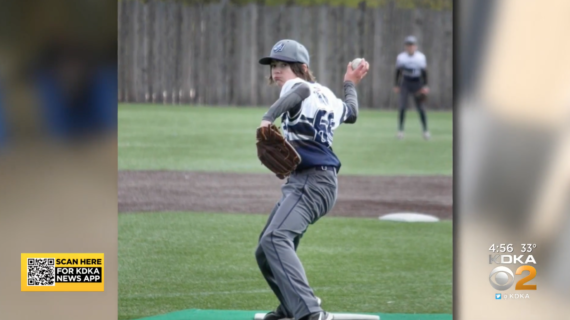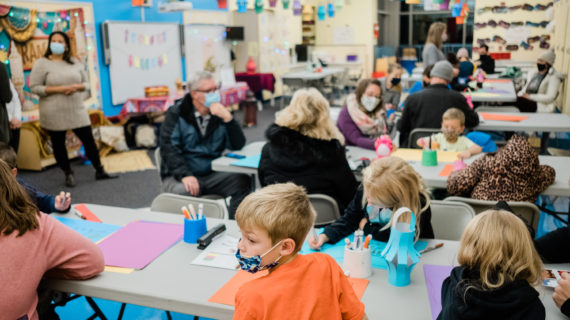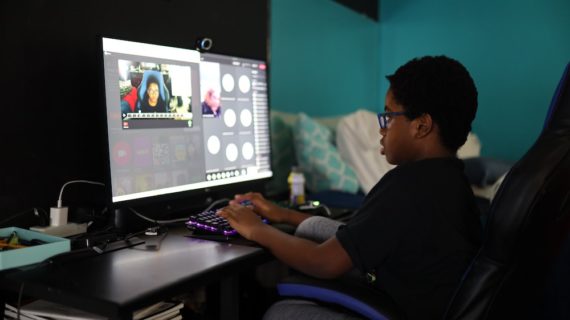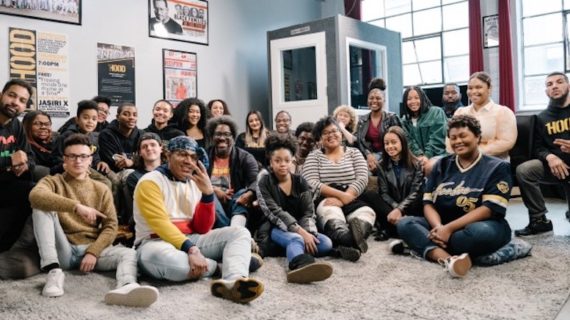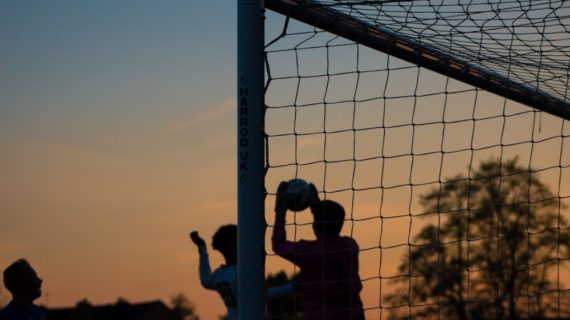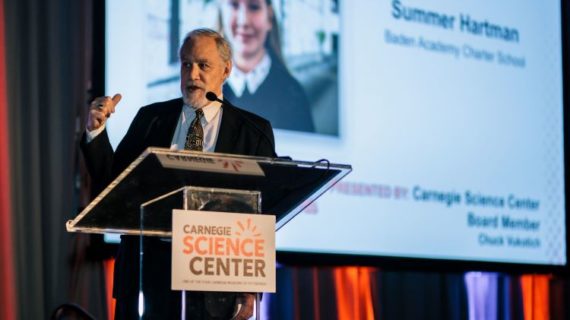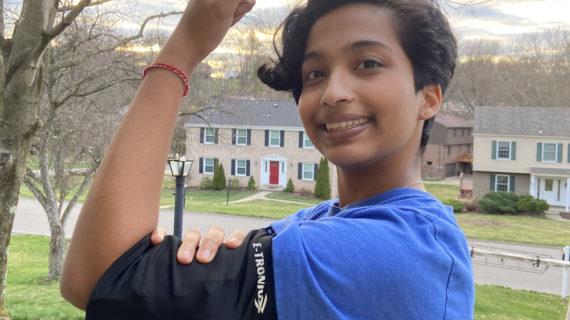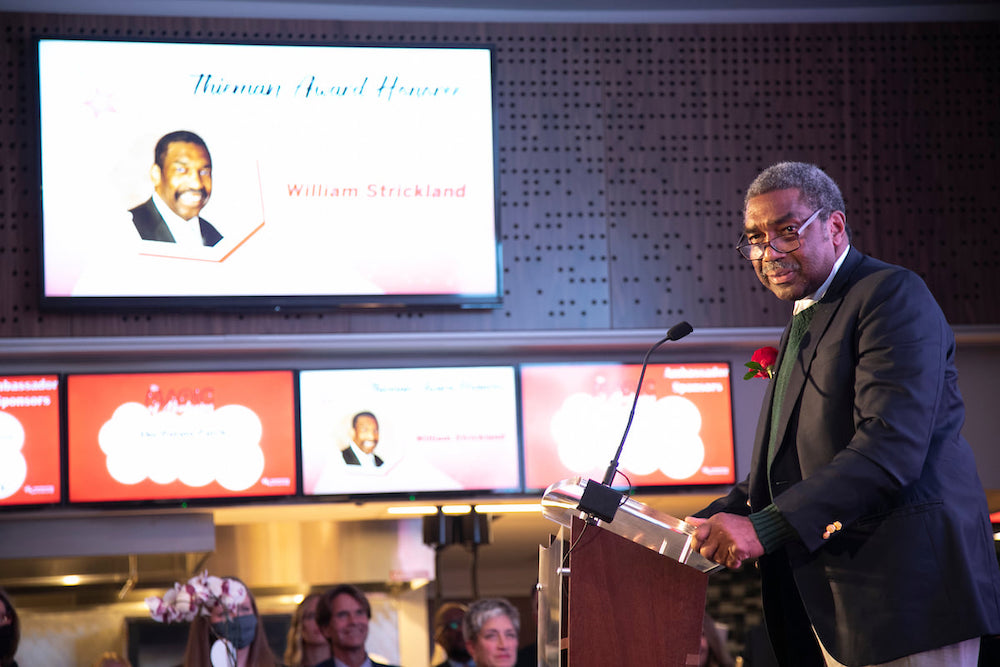
Guest Editor Bill Strickland on the simple way you can change a child’s life
Photo above of Bill Strickland speaking at Magic of Mentoring, Oct. 2021, by Renee Rosensteel published courtesy of the Mentoring Partnership.
Bill Strickland has long been a hero and a mentor to many Pittsburghers. You may know that he is the founder of the Manchester Craftsmen’s Guild, home of MCG Youth & Arts, and MCG Jazz, and also founder of the Bidwell Training Center.
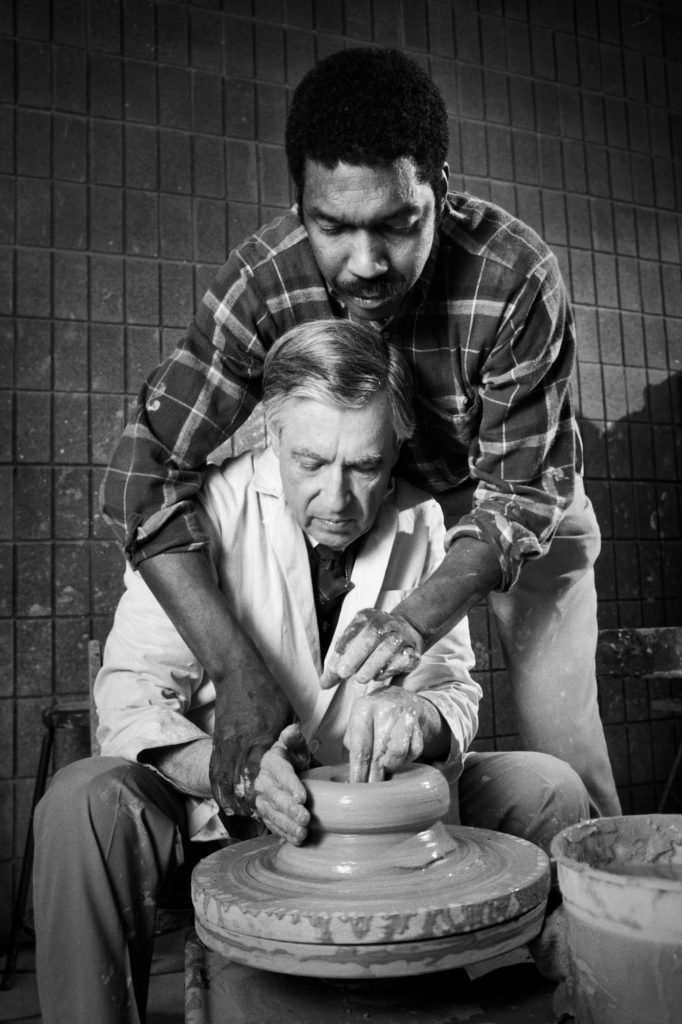
These programs bring arts learning and skill development, as well as personal empowerment and growth, to young people and adults throughout the Pittsburgh community.
Since 1968, Bill Strickland’s work has been positively transforming the lives of underserved Pittsburghers, and inspiring them to lift up others.
Bill has also been honored and celebrated by a great many organizations around the world, earning a MacArthur Genius fellowship and most recently the 2021 Thieman Award by the Mentoring Partnership.
But Bill is quick to point out that his successes and his commitment to mentoring were born out of the mentoring he received – first from a public school teacher named Mr. Ross and later from Pittsburgh’s beloved Mister Rogers, who invited Bill on his show and encouraged his talent for ceramic art.
In fact, it was actually Fred Rogers who predicted that Bill would one day build an arts center here in Pittsburgh.
Shortly before the holidays last month, Bill kindly agreed to take on the role of Kidsburgh guest editor for January. He spoke with us from that very same arts center that Fred Rogers once predicted he would build.
We’re excited to share that conversation with you here.
KIDSBURGH: You have mentored so many people. What can the rest of us learn from you?
BILL STRICKLAND: “The good news about me is, I’m a B student. Not an A student. What that literally means is just because you may not have excelled academically or professionally, that does not indicate what you’re capable of. Everybody has a role to play. There’s no special education required to do this. The thing I’m proudest of is that I was a B student who worked hard. So don’t focus on the grades. Focus on the spirit of the individual and that will lead you to the action you’re looking for.”
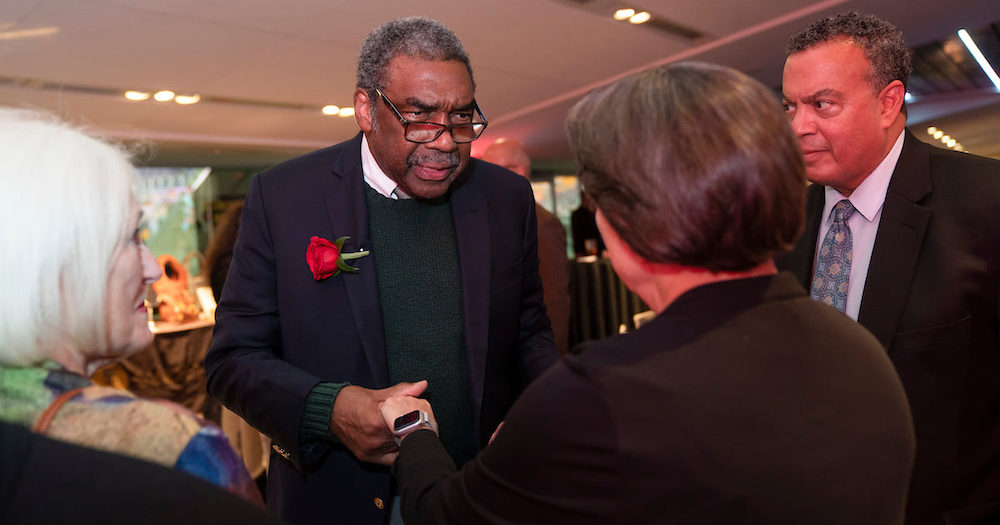
KIDSBURGH: Your first mentor, Mr. Ross, put a lot of time and effort into your life.
BILL STRICKLAND: “Yes. He was a public school teacher who said, ‘I don’t care about your grades and the color of your skin. You want to take art? I’m your guy. In effect, he really adopted me as one of his kids. And when the school closed down, Mr. Ross opened up his house. I used to take the bus to the guy’s house at 3:30 in the afternoon and stay until about 7 o’clock and take the bus back to the neighborhood. And he took me to jazz concerts at the old Civic Arena. So why do we have a music hall many years later at the Manchester Craftsmen’s Guild? Because Mr. Ross used to bring in jazz to the classroom. And I decided, “Someday, I’m gonna build a music hall.” And I did.
KIDSBURGH: That’s pretty incredible. What would you tell people who want to help kids, but can’t do as much as Mr. Ross did? Can a small time commitment make a difference?
BILL STRICKLAND: “The answer is yes. What children need is just affection and attention. And everybody can go to the park. You’re capable of doing that. You can also drag them over to my arts program on the North Side. I got hundreds of kids from every neighborhood in Pittsburgh who come over here. So you can do a field trip. But at the core of it is this: Frank Ross said, ‘This young man is worth spending time with.’ He was willing to spend time with me. And he exposed me to things like photography and jazz music. Exposure is the key to the lock. You have to figure out a strategy to expose these children to what the world has to offer. But you can’t do this work on a Zoom call. It’s got to be common human contact. And stick with it. You’ve got to do it on a relentless basis. And you’re not allowed to demand expectations in return. You do it because it’s the right thing to do.”
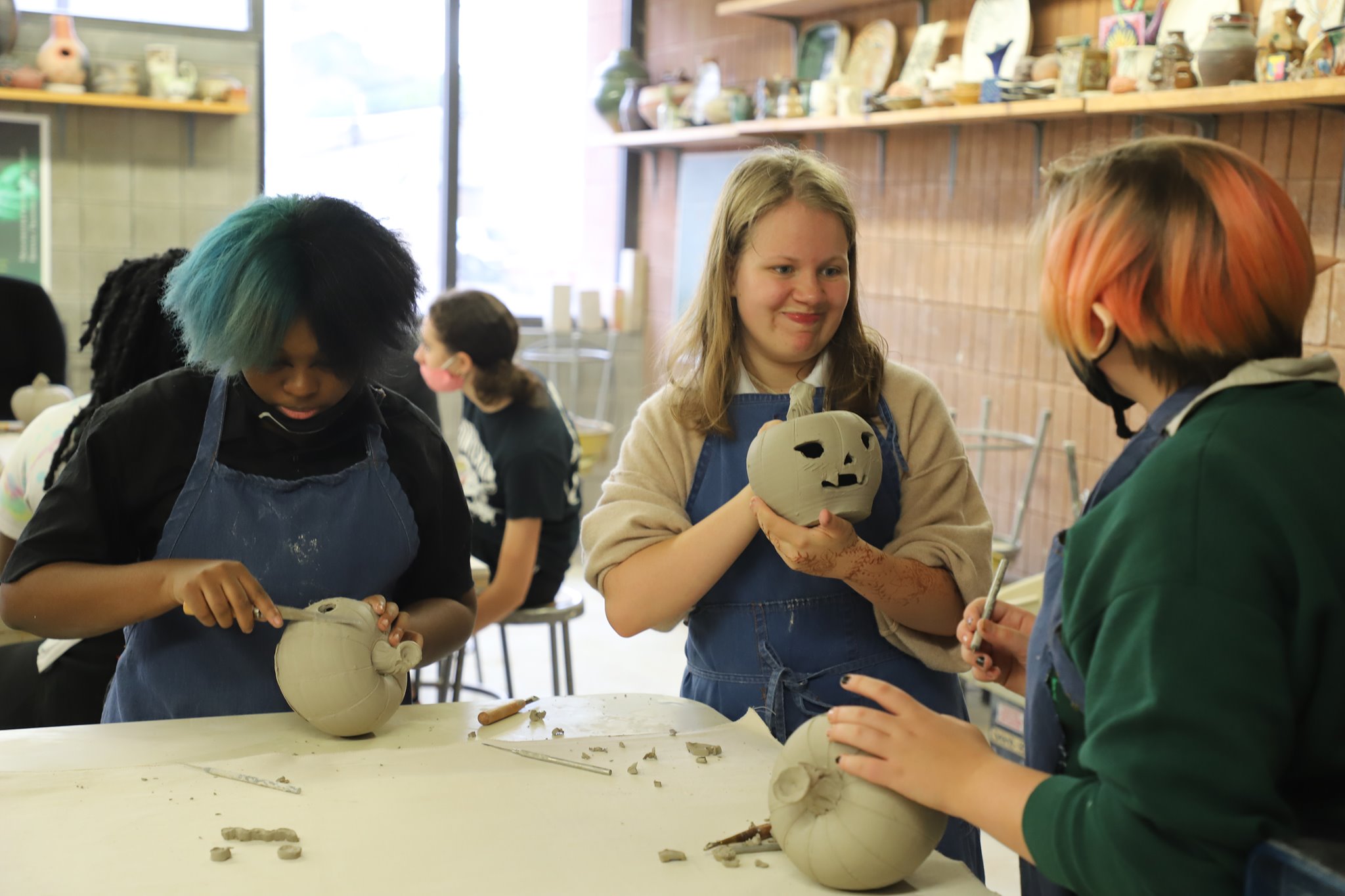
KIDSBURGH: It sounds like you’re saying a person doesn’t have to be, for example, a brilliant artist with a skill to teach. We just need to take a child to see art and let them know they are worth spending time with and getting to know.
BILL STRICKLAND: “Exactly. My whole life is a multiplicity of what you’ve just said. And it works. I’ve got three PhDs that have come out of the art program, including Dr. Sharif Bey who has a show at the Carnegie Art Museum that you can go see today. I’ve got people working for Fortune 100 companies that came out of the vocational school. These are all people who were supposed to be poor people. Well, the only thing about poverty that’s true is that they don’t have any money. But that happens to be a curable condition. It’s all in the way that you think about people that drives their behavior. If you think of people as assets, and treat them like assets, guess what? They’re going to start behaving like assets. If you treat them like liabilities, I guarantee you they’re going to act like liabilities. We turned the pyramid on its head and said, ‘We’re going to talk about aspiration. We’re going to talk about sunlight. We’re going to talk about good food, etc.’ And if you stay with that long enough, I guarantee you: You will get the outcomes you seek.”
KIDSBURGH: What if a person wants to mentor kids from an under-resourced neighborhood, but they aren’t sure how or where to begin?
BILL STRICKLAND: “There’s a whole network of people that are ready and anxious to help you bridge that gap. You do not need to pass any racial litmus test to be a part of this conversation. That is not a requirement. What is required is your desire to make the world a better place. That is required.
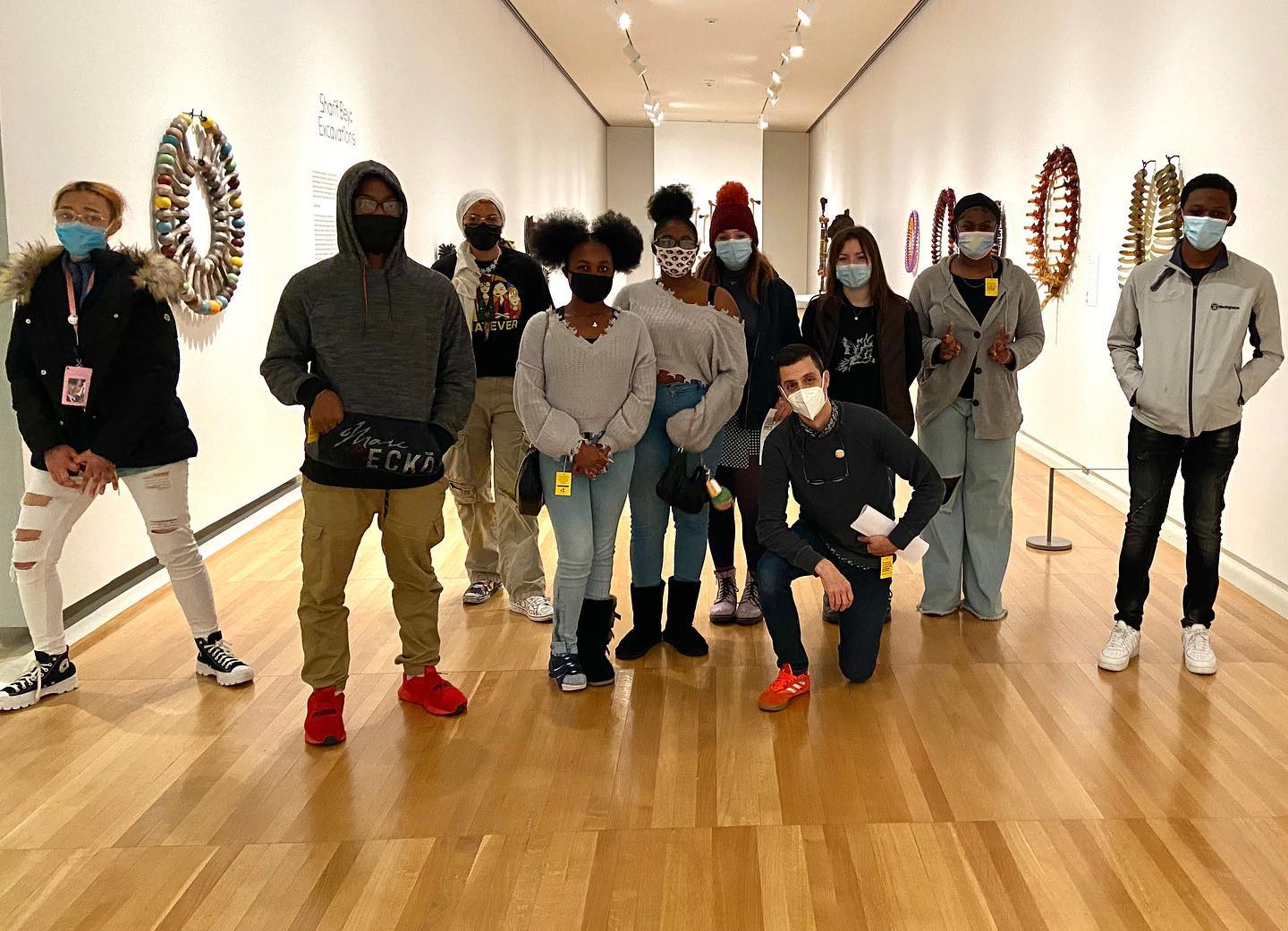
KIDSBURGH: What if people aren’t sure how to be a mentor — what to do with a child or how best to support them?
BILL STRICKLAND: “You go to the customer. The customer is the kid. They will be stunned that you actually ask them what they think. Because most people presume that they know what kids think. Mr. Rogers figured it out: He said, ‘I’m going to bring the kids into the conversation and let them do the talking. And what I’ll do is, I’ll listen to what they say.’ It was a very revolutionary idea. We all can do that. And you have to stick with it. You have to believe that — if you do the right thing long enough over a period of time, it’s a ‘water on granite’ strategy. You keep dropping that one drop of water on granite over a long enough period of time, you’ve got to make a dent. And that is how I visualize human change. It’s water on granite.”
KIDSBURGH: You’ve mentioned that when you got interested in photography, the message from your mentor wasn’t, ‘Well, let’s see how good your photos are. Let’s see if there’s any value in the art you create.’ His message was, “There is value in YOU. So let’s have fun and see what kinds of art you want to create.”
BILL STRICKLAND: “Yeah. And everybody can give that. Everybody can go to a park bench. Come on, man, what does that require? What it requires is an interest in doing it. That’s where you have to get the lock oiled, so that we can begin to have a conversation. So it means, talk to your kids OFTEN. Investigate things your kids are interested in — not just what you’re interested in. And believe me, they will be so overjoyed at the attention that is being given to them. They will respond. Because in my belief, children want to be loved. Even ones that I have worked with in the past who have not been loved. We found that in an environment that is nurturing, they will shed that crust. Their heart and their eyes will open. And they will respond, and sometimes in very tearful ways, because they realize that they’ve been in prison. And my job is to get them out of prison.”
KIDSBURGH: As 2022 begins, it seems more important than ever for all of us to participate and do that work.
BILL STRICKLAND: “The country’s depressed. I mean literally depressed, not just poetically. You drive down the street and you see it. People are on their horns. They can’t wait. There’s no courtesy. It’s me first and you not at all. We can’t continue like this. We need to lift each other up. And we can. There is so much we can do. If you take people who have come from challenged economic circumstances, and you give them gourmet food and a world-class education, you can cure the cancer of the human spirit. Mentorship Is one way that we can transfer values to the next generation. That’s exactly what happened to me. Mentorship has the power to create that value proposition for the next generation.”
